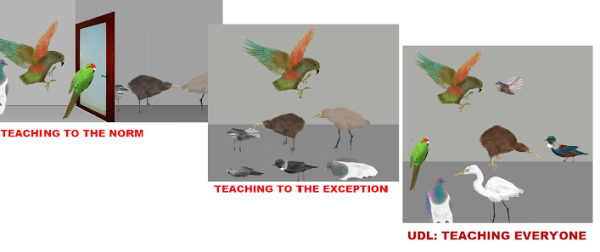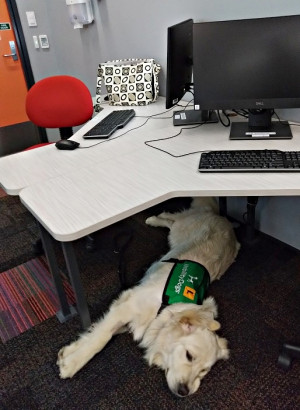Inclusive assessment design

With the guidelines, recommendations and principles on these pages in mind, we as educators need to think and design our assessments carefully. Assessment should be designed to be inclusive of all students rather than create a need for students to request accommodations.
Inclusive approaches to assessment include:
- Offering choice in assessment mode.
- Different ways to engage with the assessment instructions (e.g. in writing, verbally).
- Communicating assessment criteria.
- Ensuring that students have the opportunity to ask questions about assessments.
Support for lecturers to achieve these goals in their assessment design is available through Te Puna Ako.
Accessibility Services
 Students are encouraged to make use of the University’s Accessibility Services, where support can be provided in a number of ways, including:
Students are encouraged to make use of the University’s Accessibility Services, where support can be provided in a number of ways, including:
- Note-takers in lectures and tutorials.
- NZ sign language interpreters.
- Resource materials in alternative formats.
- Alternative test and exam arrangements, including a reader/writer, additional time and separate space.
- Assistive technologies.
Universal Design for Learning

Universal Design for Learning (UDL)
The University of Waikato is committed to providing equity in education and works to ensure that all students have access to all areas of campus life and opportunities for a positive and enriching student experience. The University of Waikato supports the principles of Universal Design for Learning (UDL), which helps educators improve outcomes for all students by acknowledging the mana of all students, reducing barriers to learning, and increasing engagement.
UDL recommends three guiding principles: multiple means of representation, multiple means of expression and action, and multiple means of engagement.

To provide all individuals with increased opportunities to learn and improve outcomes, educators should provide multiple means of:
- Representation
- Offer alternatives for visual and auditory information.
- Clarify and decode text, symbols, language.
- Guide information processing.
- Activate or supply background information.
- Expression and action
- Vary methods for response and action.
- Optimise and use multiple tools.
- Guide goal-setting; build graduated levels of support for practice.
- Facilitate managing information and processes.
- Engagement
- Optimise choice and autonomy.
- Optimise relevance and authenticity.
- Foster collaboration.
- Vary demands and heighten salience of goals.
- Provide options for self-regulation.
UDL tools
Lecturers are invited to make use of the UDL self-reflection tools available on the University website. These tools are designed to help you reflect on your teaching and assessment practices.
Disability Action Plan

Disability Action Plan
The University’s Disability Action Plan (DAP) 2023 - 2025 is grounded in law and in policy, and is informed by the Tertiary Education Strategy (TES) and the National Education and Learning Priorities (NELP).
Accessibility and inclusivity in education is achieved when:
- Students with their whānau are placed at the centre of education.
- Barrier free access is provided to all students.
- Students experience quality teaching and leadership.
- Learning is relevant to the lives of New Zealanders today.
Objective 3 of the DAP states that the University is committed to being “an inclusive teaching and learning environment”, and acknowledges that
“every student learns differently, and therefore as individual educators and as a University, we must be flexible in our approach to achieve this objective” (p. 15).
 The University’s Disability Action Plan aligns with a number of the principles in the University’s Te Tiriti o Waitangi Statement, in particular the second principle:
The University’s Disability Action Plan aligns with a number of the principles in the University’s Te Tiriti o Waitangi Statement, in particular the second principle:
Kotahi te kohao o te ngira e kuhuna ai te miro mā, te miro pango, te miro whero. I muri, kia mau ki te aroha, ki te ture, ki te whakapono.
“Through the eye of the needle pass the white 4 threads, the black threads and the red threads. Afterwards, hold firmly to your love, the law and your faith”.
The DAP is aligned with the University’s Pacific Strategic Plan (2021 - 2025) and the principles of respect, love, humility, collective wellbeing, and collective outcomes and success.